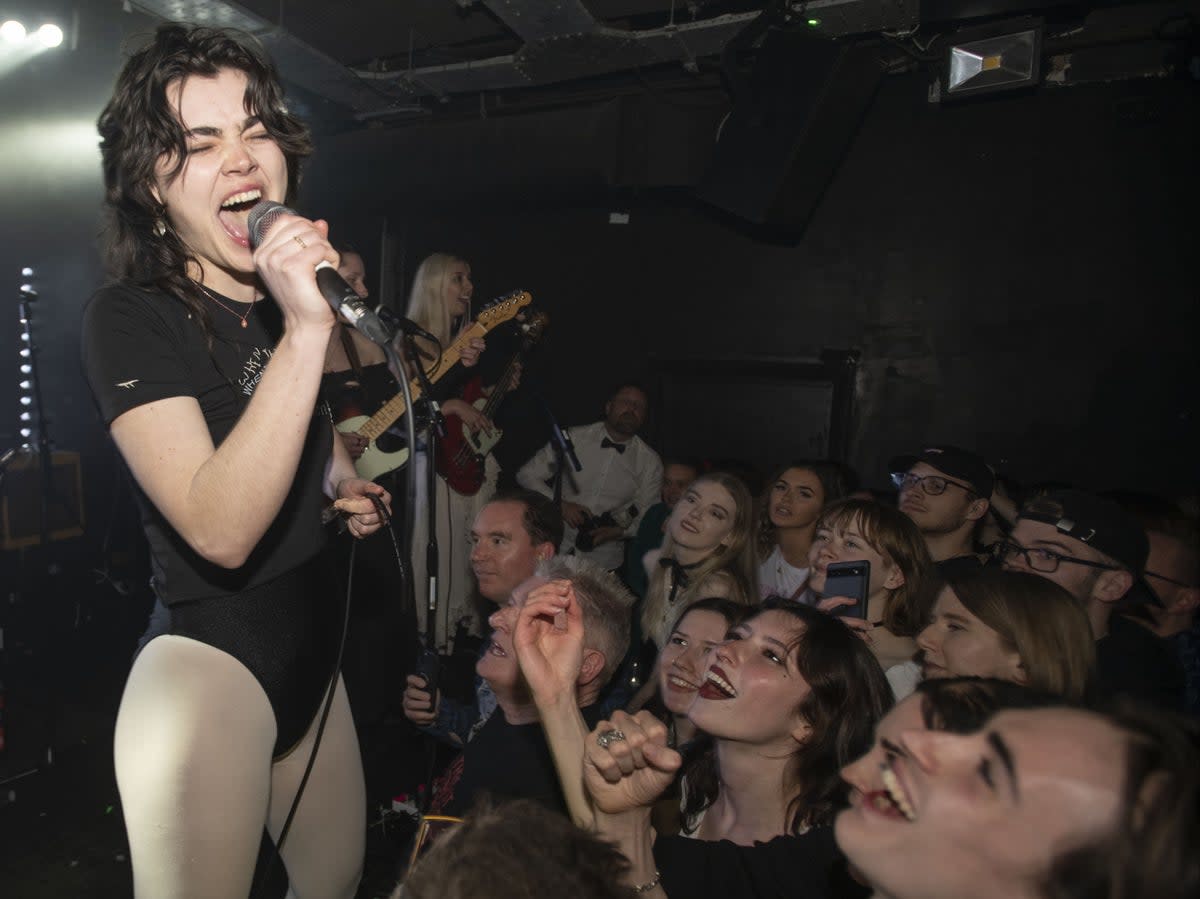The Last Dinner Party backlash exposes a strange double standard in music

What came first: the music or the misery? In The Last Dinner Party’s case, the conundrum goes along more online lines: was it the music, or was it the discourse? The all-female quintet have released just one single, the jangly anthem “Nothing Matters”, but lots of articles have been written about them, and lots of them have used the patience-testing word “buzzy”. Inevitably, that feverish hype has been followed by some hefty cynicism. Scroll through Twitter and you’ll see all kinds of suggestions. They’re “industry plants”. They’re “nepo babies”. They once flushed Sam Fender’s head down a toilet. (OK, I made that last one up.)
This was a band, the overexcited first profiles told us, who have been slogging it on the gig circuit for the past 12 months, building up a fanbase organically rather than inflicting themselves upon us via an algorithm overlord. But The Last Dinner Party are signed to major label Island Records, and managed by QPrime, which counts Metallica, Muse and Foals among its clients, so some think that’s disingenuous. These resources, some have argued, have given them a soft landing into an industry that’s notoriously tricky to break into, and a profile that doesn’t equate with a band that have only released one song. Whether their music is actually any good has seemed almost beside the point, and a debate about privilege, fairness and opportunities has threatened to overshadow the band’s momentum. But are they really baddies? Or is the scrutiny they’re facing actually a signal that women in music can never win?
If you haven’t heard of The Last Dinner Party, or heard anyone arguing about them, then they have been compared, variously, to Kate Bush, Sparks, Florence and the Machine, Queen and Abba. They dress like extras from Pride and Prejudice (the 2005 version), tearing about the countryside in floaty white dresses in their music video, and they feel like the kind of band tailormade for over-crammed basement gigs with sticky floors and sweaty dancing. I encountered the discourse before the buzz, which was discombobulating, but when I actually listened to “Nothing Matters”, my verdict was swift: total banger. “It just sounds like Abba,” my boyfriend said, before telling me to stop playing it so much. (In fairness, I did get self-conscious about singing a chorus that goes “and I will f*** you, ’til nothing matters” in earshot of my nice neighbours.)
I’m not a “music person”, and in the past that’s made me self-conscious about my taste. I’ll never forget the time a man sneered at me for wearing a band T-shirt to a gig (I was happy to be there!) and imagine how I felt when, aged 12, I learnt that Avril Lavigne was “a poseur”? Complicated, indeed. I was even, for a while, hesitant to admit I really liked The Last Dinner Party’s song. Am I, I pondered, simply tacky, gauche and basic? Yes, but the point I’m trying to make is that music world snobbery about “authenticity” can be just as oppressive as the PR-confected hype about hot young things that it is so affronted by. But not only does it make people – often women – feel as though the things they love should be looked upon with disdain, it also regularly results in something more depressing: female artists having to defend themselves.
The Last Dinner Party have already addressed accusations that they were put together by a label, saying on Twitter that “this is just a nasty lie. We weren’t put together like a K-pop girl group, we’ve known each other since we were 18 as we met during freshers week, there are videos of us playing live as an unsigned band all last year and we got signed from those.” For whatever reason – the mind-blowing sight of, I don’t know, women out of the house late at night playing musical instruments? – it is female artists who are most often accused of not really being successful on their own merits, or in command of their own creativity. Wet Leg faced similar criticisms as The Last Dinner Party, while Scandi pop star Sigrid last year admitted questions about her verisimilitude had upset her. “That feels like I’m being discredited, both for my talent but also for all the f***ing hours I’ve spent at the piano working,” she said.
What’s even more frustrating about the pushback to The Last Dinner Party, though, is how it undermines recent – justified – outrage at the ongoing lack of women getting festival headline slots. That, and the fact that no female artists were nominated for this year’s Artist of the Year award at the Brits. Many agreed that the problem was structural – not that women aren’t good enough, but the industry isn’t doing enough to develop them to the heights of their male counterparts. And yet, The Last Dinner Party have been given its backing, and that’s not seen as a positive thing.
Anyway, no number of slick, glossy PR campaigns or media hype can really make people like something. I’ve watched enough heavily trailed “voice of a generation!” debut novels sink without a trace to know that you can lead the public to your heavily publicised product, but you can’t make them buy it. Whether The Last Dinner Party’s second song is as good as their first, we’ll have to wait and see. But a young, talented female band, having to justify their existence in a landscape where female artists already find it hard to get heard? Nothing matters, they say – but I think perhaps that does.


